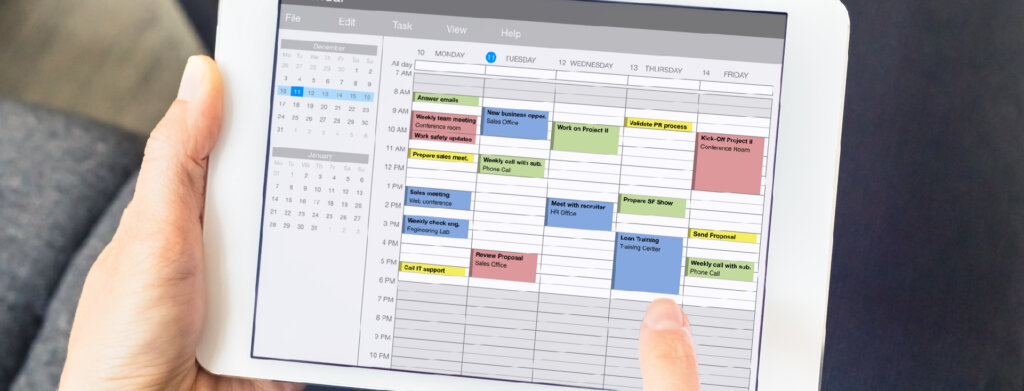Executive Podcast #223: Moving From Busy to Productive: Today Matters

In the 21 Irrefutable Laws Leadership, John Maxwell calls it the Law of Priorities: Leaders understand that activity is not necessarily accomplishment.
Want to enhance your organization’s leadership culture? Learn more about our 5 Levels of Leadership private workshops HERE – Offered virtually and on-site to meet your organization’s health guidelines.
This episode is sponsored by BELAY––the incredible organization revolutionizing productivity with their virtual assistants, accounting services, social media managers, and website specialists for growing businesses just like yours. Get BELAY’s latest ebook, Delegate to Elevate, for free, and learn how to reclaim your time. Just text the word EXEC to 55123 for your free copy today!
Download our Learning Guide for this podcast!
Perry Holley:
Welcome to the Maxwell Leadership Executive podcast, where our goal is to help you increase your reputation as a leader, increase your ability to influence others, and increase your ability to fully engage your team to deliver remarkable results. Hi, I’m Perry Holley, a Maxwell Leadership Facilitator and Coach.
Chris Goede:
And I’m Chris Goede, Executive Vice President Maxwell Leadership. Welcome and thank you for joining.
I’d love to encourage you if you are getting something out of our weekly content, this is coming straight from the field. This is Perry doing a lot of coaching, a lot of facilitating for teams. He also helps with our other facilitators and coaches. This is relevant content. I would love for you to share this podcast with someone else. And we also have team members that I know take our podcast, let their team listen to it, and then they get together for lunch or a quick meeting and say, “Hey, what’s your number one takeaway and why?”
Perry Holley:
Right.
Chris Goede:
I love how some of those people are using that. I would love for you to do that if you’re enjoying the content that you’re receiving.
Also at maxwellleadership.com/podcast, there you can fill out a form if you’re interested in hearing more about some of the things that we got going on with organizations. Maybe you want to just leave us a question or a comment. You can do that there, and we’d love for you to do that.
Today’s topic is moving from busy to productive, today matters.
Perry Holley:
Today matters.
Chris Goede:
And I love this. This is something as we think about beginning the new year, John and the 21 Laws talks about the law of priorities. And I think we all get into a little bit of maybe a rut, maybe not a positive rhythm as we get towards the end of the year. And this is the time where I think you can really refocus around these priorities.
And as a leader, you understand this, you understand that activity is not necessarily accomplishment. And even as we talked about on a previous podcast, as I review my year, I look at, how many of those things were just busy work? How many of those were activities? And I love where you’re taking us today.
Perry Holley:
It’s one of the books. John has a book called Today Matters. And it was one of the books I swore I’d never read.
Chris Goede:
Right.
Perry Holley:
And then I found myself being overwhelmed, overworked, and not in control of a calendar or any actions. And someone suggested it. And people always ask me, “What should I read? What’s a good book?” A book’s, to me, it’s only as good as where it finds you.
Chris Goede:
That’s good.
Perry Holley:
And Today Matters found me at a time that I really needed it, and it was one of the best books for me at that time. I highly recommend it, if it finds you in a good place. But people almost today, I think use busyness as a badge of honor, “I’m very busy, very busy.”
To be a Successful Leader, You Need Feedback on Your Leadership.
We’re excited to announce our new and improved Organizational Effectiveness Survey (OES). The OES gathers feedback from employees to give leaders and management the knowledge and action plans needed to develop a more effective and productive work environment. Our new version measures 4 areas of your business: Leadership, People, Strategy, and Performance.
Chris Goede:
“Look at my to-do list.”
Perry Holley:
Yeah, “Look at how busy I am.”
Chris Goede:
Yeah.
Perry Holley:
And I wonder if should we be maybe thinking more about am I producing the results? Am I productive in that? Doesn’t matter how busy I am.
I had mentioned this a long time ago, but I was giving a speech in Norway, and I saw in the advertising, on the television there in Norway that the government, the legislature was trying to reduce the work week from 40 hours to 30 hours, and that they would only work 30 hours a week. And I was talking to my colleagues in the work I was doing there, and they said, “Yeah, we don’t know why it takes Americans so long to do all their work.” I thought, “Are they making fun of me?”
Chris Goede:
Yeah.
Perry Holley:
But anyway, I thought, “Can we be more productive?” This is probably, to most people, not a lot new, but I think it would be a reminder of things that we know, but maybe we don’t do. And I’ll just start. I’ve got two or three or four, maybe five. I didn’t count.
Chris Goede:
You might have.
Perry Holley:
I might have. We’ll see. But number one for me was becoming clear, really clear on the outcome of what I’m trying to accomplish. It could be a project, it could be developing a new strategy, could be something than just what you’re trying to do in a month, whatever. But what is the outcome? How clear are you on that? Because I find that if you’re not clear on where you’re going, you can thrash about a bit and really spend time that you don’t need to doing things that aren’t really relevant.
Chris Goede:
I think this is incredibly important because if you hope to help people determine the priorities, you need to make sure that you’re extremely clear. You can’t assume that everyone is clear on the outcome. And we’re going to talk a little bit about this around clarity and priorities as we move on. But this is so important because as leaders, sometimes we do make assumptions. And by the way, our team members make assumptions on where we’re coming from. And we need to make sure that we are being very clear on what that outcome is. I just mentioned this leads to number two that you have for us. This is around priorities. Are people clear about what is the most important thing that he or she should be working on? And we often find in a lot of our coaching work that this is not the case.
Perry Holley:
That is not the case. You’re right. We use the term here when I’m teaching the Today Matters content for a client, the words I use here would be, do people understand their big rocks? And you’ve heard, this all came from Stephen Covey in The 7 Habits of Highly Effective People. And the idea of big rocks first. And if you haven’t seen that video, I always ask people, “Have you seen this lesson? Have you seen this video of this?” And many of you will. It’s been out for 30 plus years, I’m sure, but many of you have seen it. Many of you may not. I would recommend you go to, I’ll put the link in the learner guide for the video, but you can go to YouTube and search big rocks and you’ll see a thousand will come up. But pick the one with Stephen Covey.
And the young woman that he brings out of the audience to do this. But he brings her up and ask her, he’s got a container full of sand and small pebbles. He ask her to pick these big rocks on the table. They’re all labeled important customer meeting, important project, sharpen the saw, which was his words for personal development, family vacation, all these important things in your life. And he asked her to put the rocks into the container. And of course she can’t because it’s half full already with other pebbles and rocks and stones, which the container represents a 24-hour day. The pebbles and sand represent smaller, less important things. The sand is really the small nagging things, the minutes that just get eaten away, going to get a cup of coffee, walking to the restroom, coming back, stopping to talk to someone.
Minutes just get burned. And those are going to happen. But the idea was she couldn’t get them in. And he asked her to think of a new paradigm, brought out an empty container, put the big rocks in first, and then work the smaller, less important, less priority things around the big rocks. Don’t try to fit the big rocks in when you’ve already filled your time up with other things. For me, this idea of priorities and understanding your big rocks is critical to being productive because we can really busy ourselves with the pebbles and the stones and the small things, and then leave no time to get the most important things done.
Chris Goede:
I find myself, as I’m listening to you and you’re having this conversation, I love to make lists. And I don’t know if some of our listeners feel the same way, but I love at the end of the day to see a bunch of slash marks through those lists. What do I do? I naturally go to the ones I know I can knock out really, really quick. Maybe not necessarily the right order or priorities, because I may need to be accomplishing those bigger rocks first, which I should be versus crossing that out.
Perry Holley:
I looked at your list, I said, “Chris, looks like you got a lot done.” You said, “Yeah, but none of it mattered.”
Chris Goede:
None of it mattered, right.
Perry Holley:
“And I got a lot of it done.”
Chris Goede:
As we talk about this, one of the things I want to encourage leaders to do, and not only as you set up meetings with your leader, but that those that are privileged to be under your leadership is to have conversations. One of the things I like to do around this is to have the team come and say, “Bring me a list of what they feel like ranked is their priorities.” And that there’s clarity, so that there’s alignment between, but then also I can help them make sure that there’s focus on the right things. Because sometimes we just naturally get that out of order. We may put some of the easier ones up top. And Perry talked about this video. He’s going to put it in the show notes. You can download those at maxwellleadership.com/podcast.
That’s going to be important because he’s also included in illustration that we’re going to talk about next, under point number three, which just works nicely into, I want to encourage you to go there to be able to download this. Now we’re going to talk about another phrase, simple as Perry talked about. You may have heard about it, the urgent versus important and the quadrant, the four box quadrant that many of you may be familiar with. This was actually developed, and I didn’t know this until you educated me on this, but by President Eisenhower. And then Stephen Covey made it famous in how you are focusing on your priorities. In your learner’s guide is a picture of this, it’s a matrix where you’re going to see it’s a four box or a two by two. Two by two is how you call it, matrix.
You got two boxes on top. Two boxes right underneath. They’re connected together now. When you see it, you’ll understand it. Let me try to help, if you’re not able right now to download the learner guide. As you think about this, the two boxes that would be across the top, above them are two labels, and it’s urgent and then not urgent. And then down the side of the box, you have two other labels, which is important and not important. And one of the things that you mentioned in here is as we look at this, we call, we want to be working above the line.
The top half of that two by two matrix, we want to be working up in that quadrant. And when we do and we look at it, you’re going to see one of those boxes is urgent and important, and the other one is not urgent and important. When we talk about this Perry, and you put this in here, working above the line and focusing on those important things, why is that so important? Why bring this to their attention as we’re talking about the priorities and what we’re doing and what we’re working on daily?
Perry Holley:
Working above the line, if we’re below the line, I’m working on things that are by definition not important. And they could be urgent and not important or not urgent and not important. But either way, they’re not important. I always like the idea of just asking myself during my day, “Am I working above the line?” And that’s a really good, great place to start. Also, the matrix is interesting. And for so many years I just said, “That’s interesting, urgent, and important.” And I put it away because most of the teaching on this is that we spend the majority of our time, we’re very tempted to be sucked into quadrant one, upper left that is urgent and important. It has to be handled right now, it’s urgent and important. It could be an urgent customer call to client, the phone is ringing, but it’s a client.
I’ve got a deadline. Things that are happening are that urgent and important. Urgency can be caused by the nature of the work. It can also be caused by the nature of the person asking you to do the work. If John Maxwell calls my phone and says, “Perry, I need something.” Whether I think it’s urgent or not, it’s irrelevant. It’s now urgent. I need to handle that. Mark Cole calls me, I’m probably jumping on that right away unless he gives me a reason not to. And I noticed that urgent things have a funny way of sounding important. And what I love about the matrix and what I’ve been applying in my own life, and I’ve been teaching it as much as I can, is to have a small version of this that I can look at and then look at the things on my calendar, the things on my to-do list.
However, you’re capturing your inputs. We’ll talk about that in a minute. But if I ran it through the matrix, just ask yourself, “Someone’s asking me to do something. Run it through the matrix.” The first question you ask is just looking at the column to the left, “Is that the urgent column?” The first question I want to ask myself, “Is it urgent or not urgent? Who’s asking? What’s the ask?” And I think the biggest learning I could give you on this is your matrix. This is not someone else’s matrix. And because I did this exercise in class and I give them a, here’s an email that just came in and it’s in the headline. It says, “Urgent, very important, need to see you right away. I was in a meeting, somebody pushed me around, I need to talk to you. I didn’t like it.”
Whatever you think. And I see how many people in the room put that in the urgent and important. Why’d you put it urgent? Important. “It says urgent and important.” Is it urgent to you? It’s your matrix. “No, it’s not urgent to me.” Is it important to you? It’s going to depend who the person is. It’s a close friend. It is somebody on my team. It’s important. I label these quadrants. If it’s urgent and important, the word you put in there, and you can see it in the learner guide is, the I need to do it probably right now. If it’s above the line, but it’s not urgent but important. On this instance, it’s a friend of yours, they’re having a meltdown. They need to vent. It’s urgent to them. It’s not urgent to you. It’s important to them.
It’s probably important to me. I need to help my friend. I put it into the not urgent and important, the word I have in there is schedule. I can’t see you right now because I’m busy doing focus work. I can talk to you at 4:30, or I can talk to you tomorrow morning, or I can talk to you after hours, whatever it is. But I said, “Urgent and important. I need to do it. Not urgent and important. I need to schedule it.” What if it’s below the line? It happens to be urgent, but it’s not important. There are things like that that appear. This could be a ringing phone. That’s not an irate customer. I can delegate. The word I have there is delegate that it probably needs to be done, but maybe not by me. It’s not important.
It’s below the line. And then the final quadrant to the far right, bottom right is not urgent, not important. It is, don’t do. Dump it, get rid of it. Somebody asked me in the class, “Do you ever just never do anything in quadrant four?” Because quadrant four things about not urgent, not important, could be checking the sports scores, surfing the internet, looking at my social media. Of course, I do that. But I want to be intentional about it saying, “Is it knocking me out of something that’s important above the line because I’m doing, I’m vegetating over the line, over here in the bottom quadrant?” I do. But I do it intentionally. I schedule. I don’t just doom scroll. I don’t just stay. I do it. And then I move on to the next thing on my list.
BELAY Solutions:
Before we continue with today’s conversation, let’s talk about what kind of leader you want to be… Distracted? Panicked? Stretched so thin people can see through you? Of course not! Time and time again, we’ve seen that the most effective leaders––the leaders people actually want to be led by––are those who are thoughtful, compassionate, and present. As John Maxwell often says, they’re the leaders that “walk slowly through the crowd.” But in the reality of day-to-day life and work, that’s easier said than done. How often do you find yourself running through the metaphorical crowd to get to your next meeting or task?
BELAY is here to help. For over a decade, BELAY has been dedicated to helping leaders like you accomplish more by juggling less. Their highly vetted, U.S.-based Virtual Assistants and Accounting Specialists can take the tasks off your plate and free you up to truly lead. So to help you, BELAY is offering their book, Delegate To Elevate, for free. In this ebook, you’ll learn how to reclaim your time and focus only on what you do best by mastering the powerful tool of delegation. To claim this offer, just text the word EXEC, that’s E-X-E-C to 55123 for your free copy today. Again that’s E-X-E-C to 55123. In no time, you’ll be back to doing what only you can do: Leading your business.
Chris Goede:
I love that we’re talking about this and that you’re giving us this as a resource because we do become just busy in life and both professionally and personally. And I love this image. It’s very probably familiar to a lot of people, but I love the spin and how you’ve labeled these four quadrants to help us get there mentally, what we need to do. And I love that we’re including it in the show notes, so you can print that off, fold it up, maybe tape it on your wall, put it on the computer in front of you. And I think if you can develop the skill that Perry’s talking about, you can overcome 95% of what’s really killing you as being focused and being productive for the organization.
Perry Holley:
It’s hard, obviously. I’ve watch people do it in these workshops we do. And they actually taking their own calendar, their own to-do list and saying, “My boss really wants this.” Okay, does that make it urgent? Or can the boss, can it be scheduled? Does it have to be done right now? And we’re having these distractions that somebody sticks their head in and says, “Could you do this? Could you do that?” It’s urgent to them. Doesn’t make it urgent to me. It’s important to them. Doesn’t make it important to me. But there’s a lot of criteria that goes into this. You have to decide, but you need to be discriminating and about, I don’t need to do that right now. I can schedule that. I don’t need to do that at all. I can delegate that. I don’t need to do that at all. I can dump that.
Chris Goede:
Yeah, that’s good.
Perry Holley:
And you can really find your way. Number four was setting clear boundaries for yourself and your team. This is something I learned very late in my development as a leader, that if there are no… It’s like the fence around my yard. It tells me what’s mine and what’s someone else’s. And if there are no fences, it’s like the wild west of the United States. It’s that open prairies. Everything’s in play, and if everything’s important, nothing’s important. It’s going to be difficult for my team especially to know what to work on if everything seems urgent and important. I want to put some fences up to say, “This is what I want you focused on and this is what it’s okay not to focus on.” I asked a group this week, a young lady, I said, “How do you communicate priorities to your team?” And she said, “I send an email every week telling people, this is what’s important this week. We should be doing this.” I said, “I don’t know a lot of leaders to do that, but maybe that’s a good idea for you.”
Chris Goede:
Love that. The question too that comes to my mind, which we’ve shared before is are you doing only things that you can be doing for the organization? That’s a great question to be asking as a leader. But what I love about where you’re going here is that you’re not only doing this for yourself and your leadership, but you’re encouraging your team to do that. Now, leaders, listen, the only negative side of that is they may not see things as urgent as you do at times, but you need to be aware of that. Because you want to walk them through that process so that they’re not easily pulled away from what the priority is versus maybe somebody that is knocking on the door a little bit loudly because it is urgent. It is urgent to them. And I think part of this is, which is brilliant, is really helping your team understand the boundaries of what they need to be working on versus what they can put off and put in a different quadrant. Maybe ignored, but maybe just put off to a different time.
Perry Holley:
It could be timing.
Chris Goede:
It could be timing. Yeah.
Perry Holley:
Finally, number five for me was if you really want to move from just being busy to being productive, is having a system, and how do you capture inputs? I mentioned that earlier, but there’s a lot of things, people making requests, your boss asking for projects, even a personal request. The family asking this. How do I capture all that? I’m getting emails, phone messages, text messages, got things coming at me. Somebody left something on my desk the other day, could you handle this? Those are all inputs. And what do I do with that? And do I run them through the matrix? This is being asked of me, is it urgent? Is it important to me? And do I need to do it right away? Do I need to schedule it? Do I need to delegate it? Do I need not to do it?
And really then allows me to say, “This is my high priority, big rocks focused list of what I’m going to do. And now I can execute. I can really do focused work on that.” But I find most people don’t have a system for capturing inputs. It comes in and they leave it in their email, they leave it on a text message stream or something. They don’t pull it out and put it into the system to say, “This is how I’m going to capture it on a list. I’m going to capture it in my calendar. I’m going to schedule an appointment with myself to do that, to designate that time and be very intentional about that.” And it really led to understanding that I call it the yes/no paradox, is that when I say yes to something that came into me, I’ve said no to everything else I could do during that time, and I just want to be intentional about that.
Chris Goede:
Can I ask you a question? Put you on the spot. My intentional strategy may not be a good one. I just want to see what you think about it. I tend to have 43 sticky notes all over my desk.
Perry Holley:
The sticky note. The sticky note strategy.
Chris Goede:
I guess you’d probably frown upon that.
Perry Holley:
Yeah, I would frown. Although capturing them on sticky notes as they come in is not bad. And then transferring them into your system would be great, but you leave them stuck all around your computer screen. That is not a good story.
Chris Goede:
I’ll just tell you if I’m being honest with you, so even just last night before we recorded, I was at home and pulled out my briefcase and there was about 10 different sticky notes and I was like, “I got to do something with that.” I did transfer it at least to a piece of paper. What I didn’t do and what I should have done in that moment was begin to label per the quadrant to know what I needed to attack coming out of there.
Listen, as we wrap up, you made me think about a quote that I heard from Craig Groeschel where he said, “You don’t grow in your yes’s, you grow in your no’s.” To your point, this is a structure to help you do that. And we are about growth personally, and this is an important area as basic, and you may have seen some of what we’ve talked about today and heard it before, but I want to encourage you as we get up and running in the new year, that this is something that you can definitely implement that will help you do that. And be very clear about what is important for you, and then also for your team members.
There’s so many distractions. And social media is a big bucket of it. There’s a lot of distractions in the environment, and if we don’t have a system in place to where we can follow, that we can rely on a framework, then we are going to just be busy and not productive.
Perry Holley:
Fantastic. Chris mentioned that we’re all about personal growth. We have an opportunity for you March 13th in Orlando, Florida, will be personal growth day. John Maxwell will be there, and several thousand of your closest friends. Chris and I will be there, and we would love to see you. You can learn more about that at maxwellpodcast.com/growthday, and you can learn more about that event. It’ll be a one-day personal growth opportunity for you. You can also, if you want to learn more about our other offerings, leave us a question or a comment. You can and get the learner guide for this episode. You may do that at maxwellleadership.com/podcast. We love hearing from you and we’re very grateful you would spend this time with us today. That’s all from the Maxwell Leadership Executive Podcast.












Be the first to comment on "Executive Podcast #223: Moving From Busy to Productive: Today Matters"